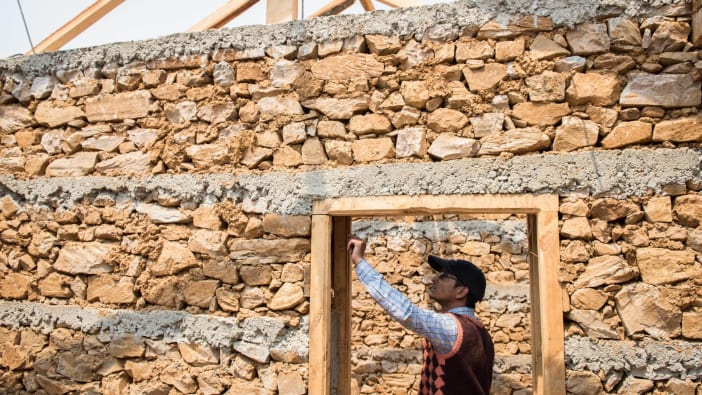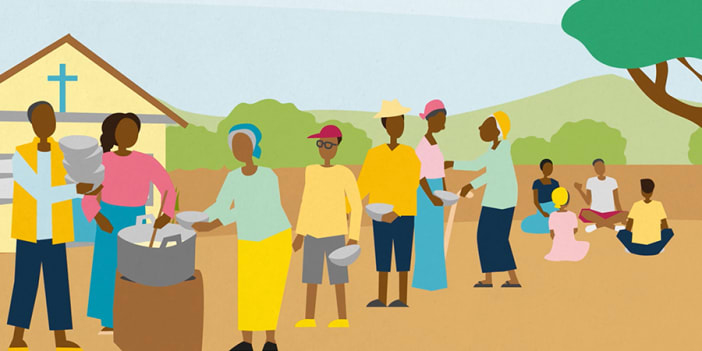by Alastair Seaman.
International Nepal Fellowship (INF) has run a community health and development programme in Myagdi District, Nepal for over ten years. For the last six years the programme has encouraged marginalised people to meet together to plan ways of improving their lives. There are now about 40 such groups carrying out action plans to meet their own objectives. The programme offers these groups technical assistance in the areas of health, horticulture, literacy and drinking water system design and installation.
In 2001 there was a terrible landslide in Arman village which lies outside INF’s working area but within Myagdi district. Sixteen people were killed and many houses destroyed. Public facilities, such as the primary school and water supply, were also damaged. Nearly 100 households were directly affected.
Shortly afterwards, INF was asked for help. Responding to disaster was not part of our plan – we had no budget for this kind of work and the disaster took place outside our working area. However this time, we decided to raise money and help.
Why get involved?
There were two main reasons we decided to help. Nepal has been suffering from a Maoist ‘People’s War’ that has claimed over 8,000 lives during the last seven years. During this time, many development programmes have been forced by Maoists to scale down or stop their activities, particularly programmes like ours, that use an ‘empowerment’ approach. However, when faced with a disaster and great need, Maoists are more willing for development agencies to be involved. So the first reason for responding positively was that we were presented with a rare ‘window of opportunity’ to work with local people to make a difference.
Another reason for getting involved was that this was an opportunity to bring both sides in the conflict closer together as they worked jointly on an issue that was important for both of them. In a small way, helping the community to respond to disaster helped to build relationships between people on both sides of the conflict. It also helped to maintain INF’s good reputation in the district. This increased our acceptability to both sides in the conflict and improved our ability to continue with other parts of our programme
How to get involved?
Programme staff wanted to respond in a way that benefited the whole community rather than just part of it. We wanted our input to improve the capacity of the community to work together. We began by meeting with the disaster committee set up by local people to find out what the most important needs were. We decided together that the best way of meeting our objectives would be to help rebuild the primary school. As well as repairing the building, we were able to replace damaged furniture, repair the drinking water supply and install new toilets. INF provided construction and engineering advice as well as materials that were not available locally, such as cement and water pipes. The work was carried out using local labour that was partly voluntary and partly paid by INF. Paying local tradesmen and labourers encouraged the community’s economy and helped some members to develop new and valuable skills.
Future planning
Following the experience in Arman, the programme decided to include responding to local disaster as a regular part of its activities. This means that we now make provision for this kind of work in our plans and budgets.
Alastair and Fiona Seaman are seconded to INF, Nepal by Tearfund. Their address is INF, PO Box 5, Pokhara, Nepal. E-mail: [email protected] Website: www.inf.org.np









